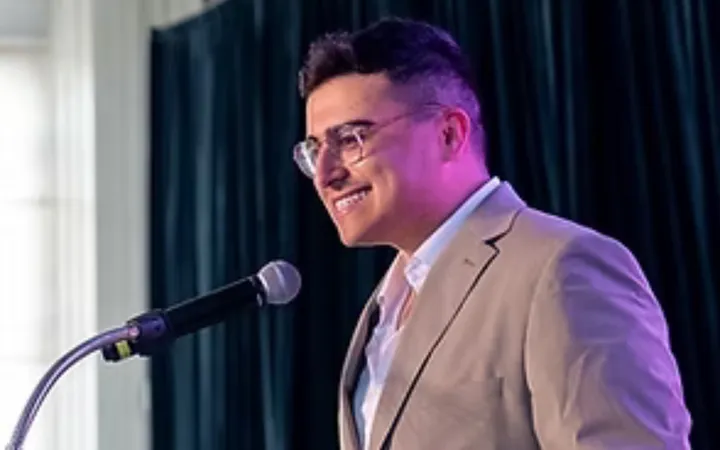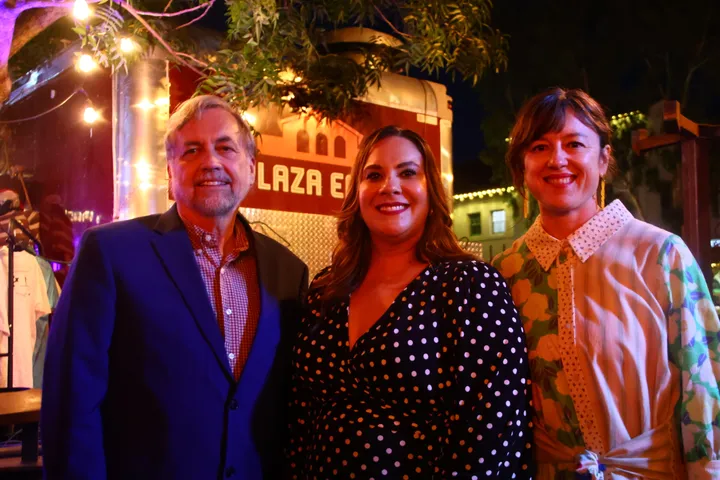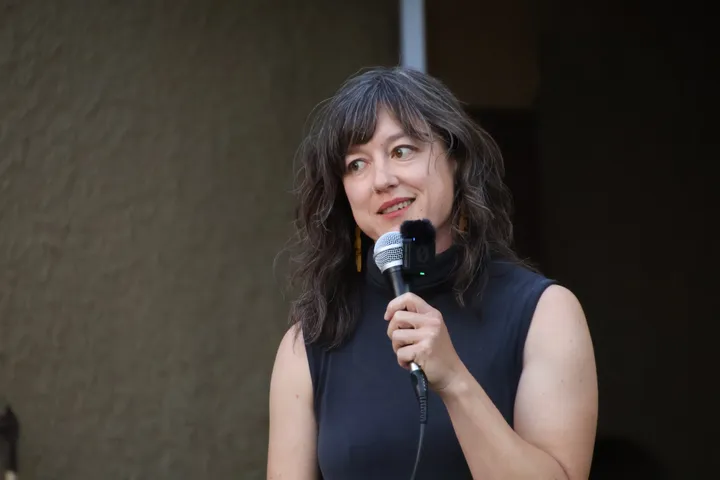Ward 5 candidates tackle power, housing and more at forum
Ward 5 City Council candidates Selina Barajas and Chris Elsner shared their views on public power, development, sustainability and homelessness during a League of Women Voters forum ahead of ballots being mailed this week.
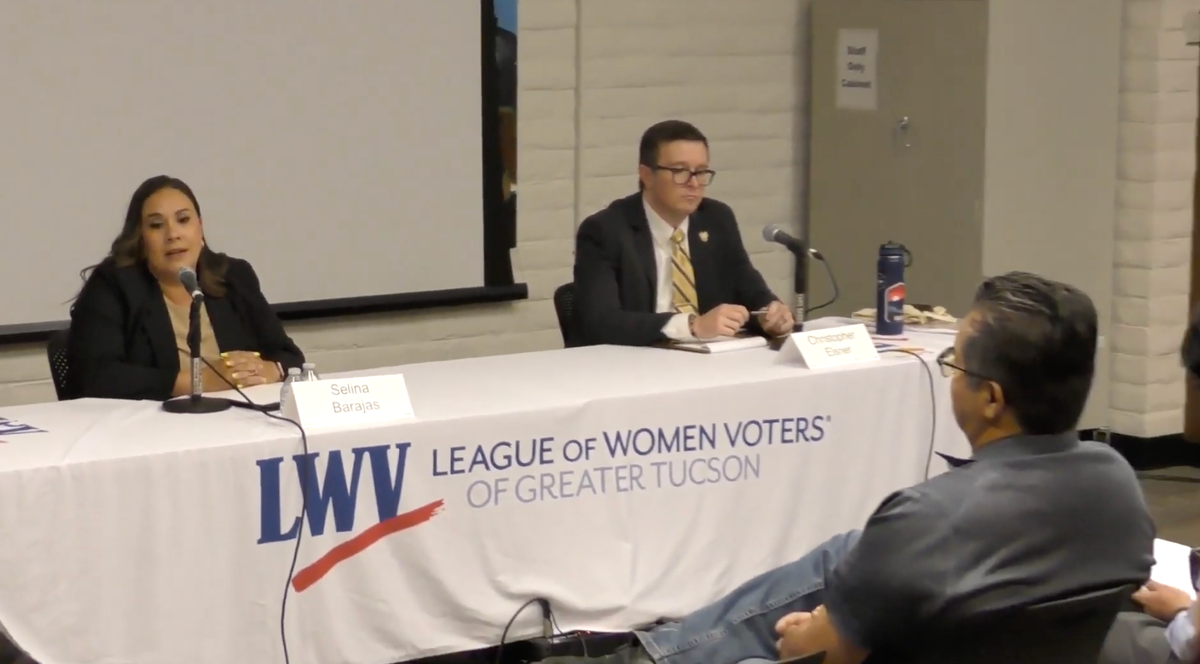
With ballots set to hit mailboxes this week, two candidates for the Tucson City Council’s Ward 5 seat faced off at a League of Women Voters forum, sharing their views on key issues including sustainability, homelessness and local development.
Selina Barajas and Chris Elsner were each given two minutes to make an opening statement before fielding questions, which touched on everything from power and sustainability to homelessness and recent City Council votes.
The third candidate, Jesse Lugo, declined to attend, citing health issues. Lugo has failed to respond to multiple interview requests from Tucson Spotlight.
Here’s what Barajas and Elsner had to say:
TEP franchise agreement
The Tucson City Council has been exploring the possibility of forming a public power utility, potentially taking over the local grid from Tucson Electric Power, as part of its climate action plan. This exploration is specifically timed with the expiration of TEP’s current franchise agreement in 2025.
Elsner said that while he doesn’t believe the timing is right, he supports the city pursuing a path to public power.
“It would make economic sense either for the city to buy out TEP and implement public utility or go with the community aggregation,” Elsner said. “At the end of the day, I think TEP extracts a lot of revenue and resources from our community. All of that revenue and profit that they’re able to donate into the community comes from the backs of the ratepayers of the residents of Tucson.”
TEP is owned by a Canadian energy company that generates hundreds of millions of dollars in revenue every year. Elsner said that while it’s great that TEP sponsors local charities and funds community efforts, more of that money should stay in the community.
“And with the increasingly warm heating climate with climate change, heat is a health and safety concern,” he said.
Barajas spoke about the need for more conversation and education around clean energy, saying those efforts are key to creating a truly climate-resilient city.
“There’s just so much going on right now around TEP that we need to really sit down as a community to see how it’s going to benefit us and our constituents and also think about, you know, for the long haul,” Barajas said.

Project Blue
Candidates also weighed in on Project Blue, a proposed large-scale economic development project involving the construction of a data center campus on Tucson’s southeast side. The Pima County Board of Supervisors approved a purchase agreement two weeks ago, but the Tucson City Council still needs to vote on whether to begin the annexation process and enter into a development agreement.
Elsner said he would need more information before sharing how he would vote but expressed shock at the nondisclosure agreement attached to the deal.
“I’m appalled we would go into any kind of relationship with NDAs that prevent elected officials from knowing about what they're voting on or sharing with the public what they’re voting on,” Elsner said.
He also expressed environmental concerns about the data centers, including high energy and water use.
Barajas criticized the supervisors for what she said was a lack of public transparency over the project’s details, before focusing on its environmental impact.
“Something I want to push for in Ward 5 is sustainable development, because these projects are not just for right now,” she said. “For us, here in this room, it really is for the next seven generations, and we have to be mindful of every development that is taking place here in Tucson.”
The Norte-Sur Project
The Tucson Norte-Sur Project is a plan to identify opportunities for equitable reinvestment and access along a future 15-mile North-South High Capacity Transit corridor that will connect the Tucson Mall on the north side, through downtown Tucson, and down to the Tucson Airport on the south side.
While the project aims to benefit all community members, new transit investments carry a risk of displacement due to potential increases in rents and home prices, leading to gentrification.
Barajas shared her involvement with the project, explaining that it would improve transit time by creating a single bus route connecting the Laos Transit Center on the south side to the Tohono Tadai Transit Center near Tucson Mall, while also sympathizing with residents’ concerns.
“A lot of folks are fearful of gentrification and displacement, and rightfully so, because there has been a history of that with downtown and urban renewal,” Barajas said. “This policy recommendation … is an Equitable Transit Oriented Development. We as a community can make recommendations to the city of Tucson of halting or preventing gentrification.”
Elsner took a similar stance, saying he supported the project due to its enhancement of Tucson’s public transportation.
“I think gentrification and displacement are big concerns for certain parts of our community,” he said during his opening statement. “At the same time, I don’t think we need to shy away from being bold in terms of developing public infrastructure and public transportation.”
Sustainability
Barajas suggested the possibility of an energy audit in Ward 5 as a starting point for improving the area’s sustainability.
“Looking at our existing infrastructure, a lot of our homes are older, and that means they can have some updates — some qualify for some rebate programs,” she said. “Whether that’s installing some new windows or fluorescent LED green energy lighting, there are some things that we could do to make it more sustainable.”
Barajas also expressed the need for more trees and shade and advocated for requiring new developments to incorporate green infrastructure moving forward.
Elsner said he wanted to see more solar energy and rainwater harvesting efforts in Ward 5.
“We need a lot more renewable energy,” he said. “I’m shocked that every house in Tucson doesn’t have solar panels, so I think we should lean heavily into making sure that we have a solar panel on as many homes as possible, supporting that in the community.”
He proposed a public-private partnership to help make solar more affordable and accessible for homeowners.
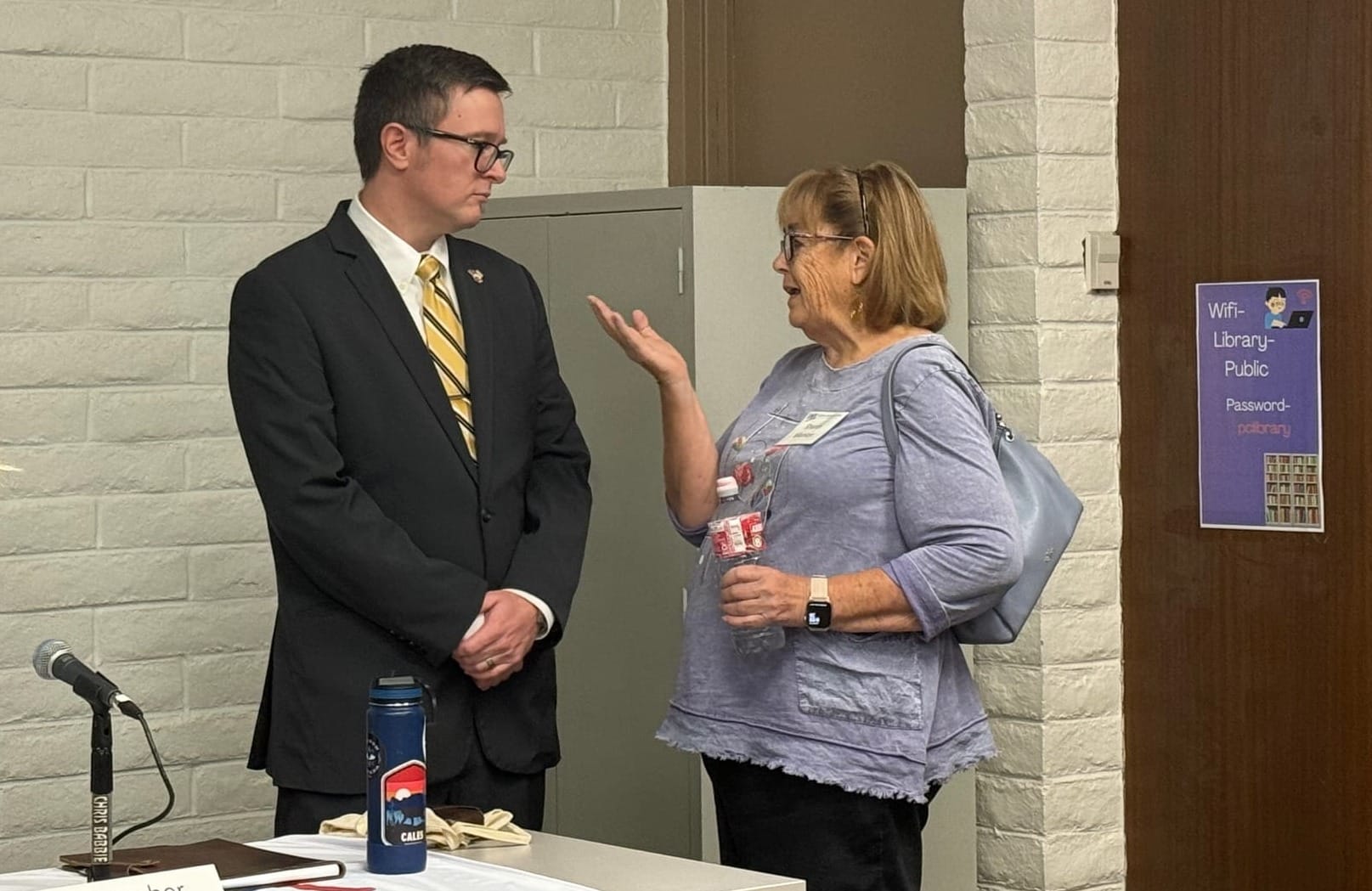
Homelessness
Candidates were also asked to weigh in on an ordinance recently approved by the City Council that makes it illegal for people to camp and sleep in washes.
Barajas didn’t indicate how she would have voted but said that unhoused people have different needs and that she wants shelters to be a transformative stop on a person’s journey to stability.
She said she’d like to see shelters assist people in finding work, finishing their education or getting help for mental health or addiction issues. She argued that forcing unhoused people to move from place to place is not sustainable for the community.
Elsner expressed his opposition to the ordinance, saying that it was a preemptive move to respond to the tax claims that came with Proposition 312.
Prop. 312 allows property owners in Arizona to apply for a property tax refund if their local government has a pattern of not enforcing laws related to public nuisances such as illegal camping, loitering or panhandling. The refund is intended to offset expenses incurred by property owners in mitigating the effects of these unaddressed nuisances.
“I’m not a lawyer, but I don’t understand how creating more ordinance lessens our liability,” Elsner said. “Not enforcing ordinances and creating additional ordinances and things like that, that we don’t have the resources or capacity to enforce … seems like it would open us up more.”
He suggested taking proactive steps to help keep people in their homes, including freezing property taxes for seniors on fixed incomes and ensuring that landlords can’t arbitrarily raise rates.
Voters will have a chance to talk to candidates at a candidate meet-and-greet on Tuesday, co-hosted by Tucson Spotlight and the Arizona Luminaria. Find details and RSVP here.
Sarah Arellano is a journalism major at the University of Arizona and Tucson Spotlight intern. Contact her at saraharellano@arizona.edu.
Tucson Spotlight is a community-based newsroom that provides paid opportunities for students and rising journalists in Southern Arizona. Please consider supporting our work with a tax-deductible donation.

